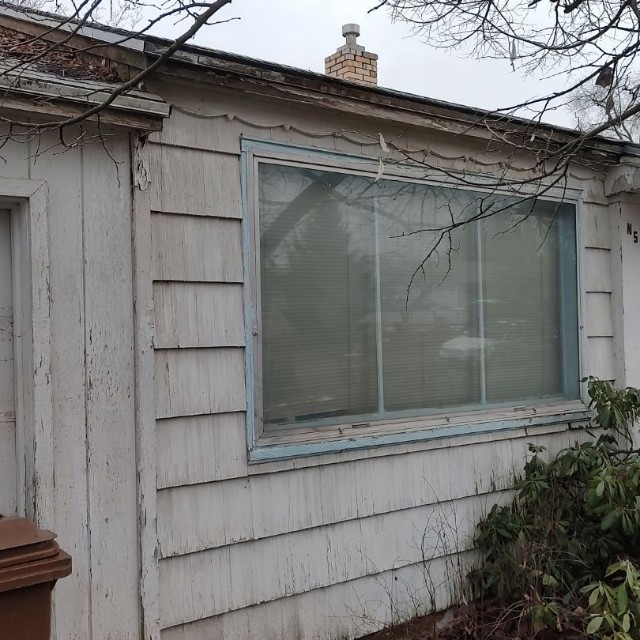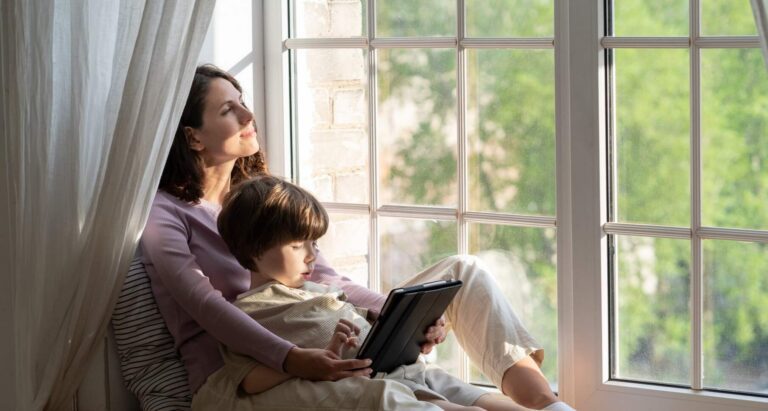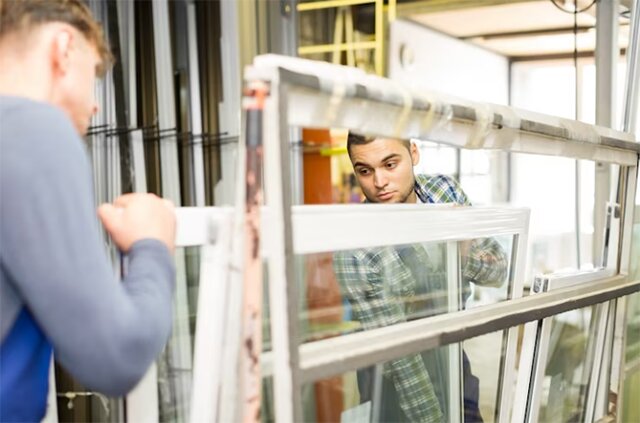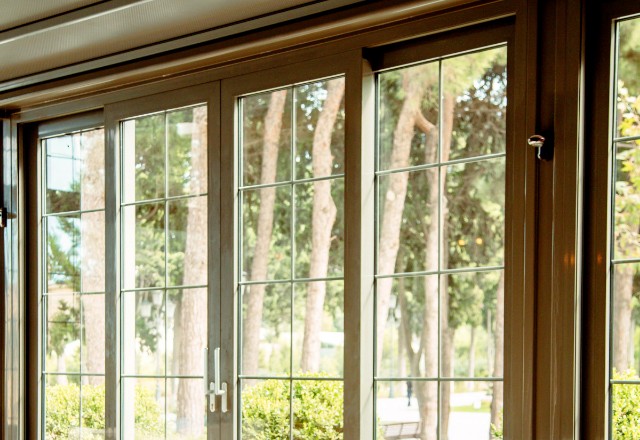As a homeowner, you may find yourself wondering, “When should windows be replaced?” Windows play a crucial role in your home’s comfort, energy efficiency, and overall aesthetic. However, like any other component of your home, windows don’t last forever. Knowing when it’s time to replace your windows can save you money on energy bills, improve your home’s comfort, and boost its curb appeal.
In this comprehensive guide, we’ll discuss the signs that indicate it’s time to replace your windows, the benefits of timely window replacement, factors to consider when choosing new windows, and the installation process. By the end of this article, you’ll have a clear understanding of when should windows be replaced and how to go about it.
The Importance of Well-Functioning Windows
Before we dive into the signs that your windows need replacement, let’s discuss why well-functioning windows are so important. Your windows serve several key purposes:
- Energy Efficiency: Windows play a significant role in your home’s energy efficiency. They help keep your home warm in the winter and cool in the summer by preventing heat transfer.
- Comfort: Well-functioning windows help maintain a consistent, comfortable temperature throughout your home. They also reduce outside noise and drafts.
- Natural Light: Windows allow natural light to enter your home, which can help reduce the need for artificial lighting and improve your overall well-being.
- Ventilation: Opening your windows allows fresh air to circulate through your home, improving indoor air quality.
- Home Value: High-quality, well-maintained windows can boost your home’s curb appeal and overall value.
Signs It’s Time to Replace Your Windows
So, how do you know when should windows be replaced? Here are some key signs to watch for:
1. Age of Windows
The lifespan of windows varies depending on the material and quality of construction. Here’s a general guide:
Window Material | Average Lifespan |
Vinyl | 20-40 years |
Wood | 30-50 years |
Aluminum | 15-20 years |
Fiberglass | 50+ years |
If your windows are approaching or exceeding these age ranges, it may be time to consider replacement, especially if you notice other signs of wear and tear.
2. Drafts and Air Leaks
Do you feel a draft or cold spot near your windows, even when they’re closed? This could indicate that your windows are no longer sealing properly, allowing air to leak in and out of your home. Drafts and air leaks not only make your home less comfortable but also force your heating and cooling system to work harder, leading to higher energy bills.
To check for drafts, hold a candle or incense stick near the edges of your window frames. If the flame or smoke flickers or moves, you likely have an air leak. Another telltale sign is if your curtains or blinds move when the windows are closed.
3. Difficulty Opening or Closing
If your windows are difficult to open or close, it’s a sign that they may need replacement. This issue can be caused by several factors, including:
- Warped or damaged frames
- Loose or broken hardware
- Poorly balanced sashes
- Accumulated dirt and debris
In addition to being a nuisance, windows that don’t open or close properly can pose a safety risk, especially in an emergency situation where you may need to quickly exit your home.
4. Condensation or Frost Build-up
Do you notice condensation or frost build-up between the panes of your double- or triple-pane windows? This is a sign that the seal between the panes has failed, allowing moisture to enter. Not only does this reduce the window’s energy efficiency, but it can also lead to mold growth and damage to the surrounding walls and window sills.
Keep in mind that some condensation on the interior surface of your windows is normal, especially in humid environments. However, if you notice persistent or excessive condensation, it’s worth having your windows inspected by a professional.
5. High Energy Bills
If you’ve noticed a sudden spike in your energy bills, your windows may be to blame. Older, inefficient windows can allow a significant amount of heat transfer, forcing your heating and cooling system to work overtime to maintain a comfortable temperature.
To determine if your windows are the culprit, compare your energy bills to previous years or similar homes in your area. If you notice a significant difference, it may be time to invest in energy-efficient replacement windows.

Benefits of Timely Window Replacement
Replacing your windows when they start to show signs of wear and tear can provide numerous benefits, including:
1. Energy Savings
Energy-efficient replacement windows can help reduce your heating and cooling costs by preventing heat transfer and minimizing air leaks. According to the U.S. Department of Energy, replacing single-pane windows with ENERGY STAR-certified windows can save you $101-$538 per year on energy bills, depending on your location and the type of window you choose.
2. Improved Comfort
New windows can help eliminate drafts, cold spots, and outside noise, making your home more comfortable year-round. Many modern windows also feature low-E coatings and other technologies that help reduce UV radiation, protecting your furniture and flooring from fading.
3. Enhanced Home Value
Replacing your windows can provide a significant return on investment (ROI) when it comes time to sell your home. According to the 2020 Cost vs. Value Report by Remodeling Magazine, window replacement projects can recoup 68-78% of their cost, depending on the type of window and location.
In addition to the financial benefits, new windows can also improve your home’s curb appeal, making it more attractive to potential buyers.

Choosing the Right Replacement Windows
Once you’ve determined that it’s time to replace your windows, it’s important to choose the right type of window for your home. Here are some key factors to consider:
1. Climate and Location
Your local climate and the orientation of your windows (north, south, east, or west) will play a significant role in determining the best type of window for your home. For example, if you live in a hot, sunny climate and have large west-facing windows, you may want to choose windows with a low solar heat gain coefficient (SHGC) to minimize heat transfer.
2. Energy Efficiency
When choosing replacement windows, look for windows with high energy efficiency ratings. The two main ratings to consider are:
- U-factor: Measures a window’s ability to prevent heat transfer. Lower numbers indicate better insulation.
- Solar Heat Gain Coefficient (SHGC): Measures a window’s ability to block heat from the sun. Lower numbers indicate less heat gain.
Windows with the ENERGY STAR label have been independently certified to meet strict energy efficiency guidelines set by the U.S. Environmental Protection Agency.
3. Material Options
Replacement windows are available in a variety of materials, each with its own benefits and drawbacks. Here’s a comparison of the most common window materials:
Material | Pros | Cons |
Vinyl | – Affordable<br>- Low maintenance<br>- Good insulation | – Limited color options<br>- Can warp or fade over time |
Wood | – Classic aesthetic<br>- Good insulation<br>- Can be painted or stained | – Requires regular maintenance<br>- Can be expensive |
Fiberglass | – Durable<br>- Low maintenance<br>- Good insulation | – More expensive than vinyl<br>- Limited color options |
Aluminum | – Affordable<br>- Lightweight<br>- Low maintenance | – Poor insulation<br>- Can dent or scratch easily |
Consider your budget, aesthetic preferences, and maintenance requirements when choosing a window material.
4. Style and Operation
Replacement windows are available in a variety of styles and operating mechanisms, including:
- Single-hung: Bottom sash moves up and down, top sash is stationary
- Double-hung: Both sashes move up and down
- Casement: Hinged on one side, swings outward like a door
- Sliding: Sashes slide horizontally along a track
- Picture: Stationary window, does not open
Choose a window style that complements your home’s architecture and meets your ventilation needs.

Choosing the Right Replacement Windows
Once you’ve determined that it’s time to replace your windows, it’s important to choose the right type of window for your home. Here are some key factors to consider:
1. Climate and Location
Your local climate and the orientation of your windows (north, south, east, or west) will play a significant role in determining the best type of window for your home. For example, if you live in a hot, sunny climate and have large west-facing windows, you may want to choose windows with a low solar heat gain coefficient (SHGC) to minimize heat transfer.
2. Energy Efficiency
When choosing replacement windows, look for windows with high energy efficiency ratings. The two main ratings to consider are:
- U-factor: Measures a window’s ability to prevent heat transfer. Lower numbers indicate better insulation.
- Solar Heat Gain Coefficient (SHGC): Measures a window’s ability to block heat from the sun. Lower numbers indicate less heat gain.
Windows with the ENERGY STAR label have been independently certified to meet strict energy efficiency guidelines set by the U.S. Environmental Protection Agency.
3. Material Options
Replacement windows are available in a variety of materials, each with its own benefits and drawbacks. Here’s a comparison of the most common window materials:
Material | Pros | Cons |
Vinyl | – Affordable<br>- Low maintenance<br>- Good insulation | – Limited color options<br>- Can warp or fade over time |
Wood | – Classic aesthetic<br>- Good insulation<br>- Can be painted or stained | – Requires regular maintenance<br>- Can be expensive |
Fiberglass | – Durable<br>- Low maintenance<br>- Good insulation | – More expensive than vinyl<br>- Limited color options |
Aluminum | – Affordable<br>- Lightweight<br>- Low maintenance | – Poor insulation<br>- Can dent or scratch easily |
Consider your budget, aesthetic preferences, and maintenance requirements when choosing a window material.
4. Style and Operation
Replacement windows are available in a variety of styles and operating mechanisms, including:
- Single-hung: Bottom sash moves up and down, top sash is stationary
- Double-hung: Both sashes move up and down
- Casement: Hinged on one side, swings outward like a door
- Sliding: Sashes slide horizontally along a track
- Picture: Stationary window, does not open
Choose a window style that complements your home’s architecture and meets your ventilation needs.

Conclusion
Knowing when should windows be replaced is crucial for maintaining a comfortable, energy-efficient home. By watching for signs like age, drafts, difficulty opening or closing, condensation, and high energy bills, you can catch window issues early and schedule a timely replacement.
When choosing replacement windows, consider factors like your climate, energy efficiency ratings, material options, and style preferences. And while it may be tempting to tackle the project yourself, hiring a professional window installer can ensure a proper fit and seal, saving you headaches down the road.
Remember, window replacement is an investment in your home’s comfort, energy efficiency, and overall value. By staying on top of your windows’ condition and replacing them when necessary, you can enjoy the benefits of well-functioning windows for years to come.
Frequently Asked Questions (FAQs)
Can I replace just one or a few windows at a time, or do I need to replace them all at once?
How long do replacement windows typically last?
Are there any government incentives or rebates available for energy-efficient window replacement?
Any window issues?
Our experts can provide a free consultation and advice on the best solution
Call us at



 509-201-4190
509-201-4190
